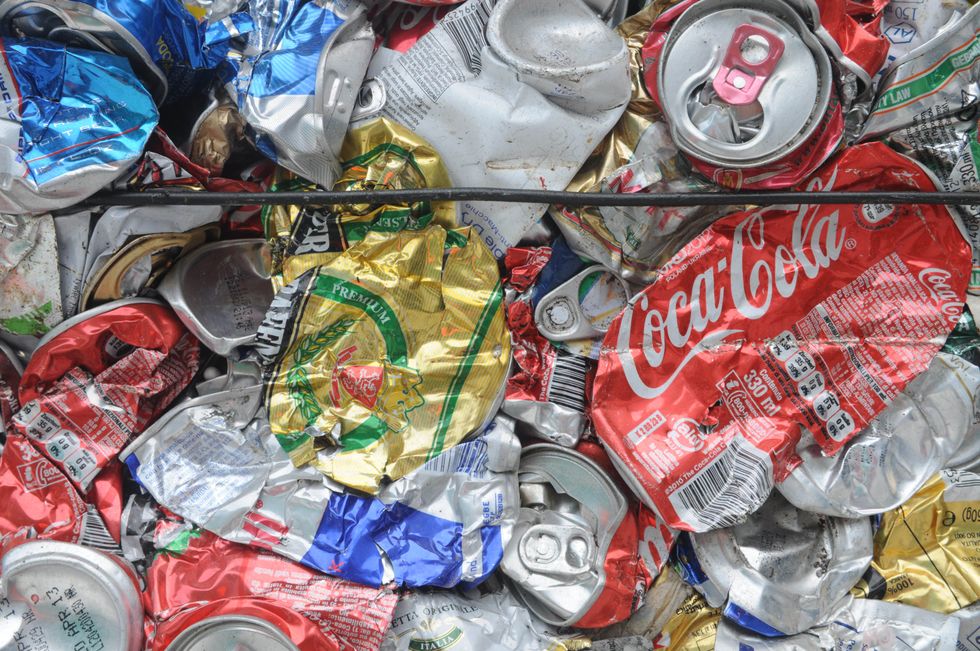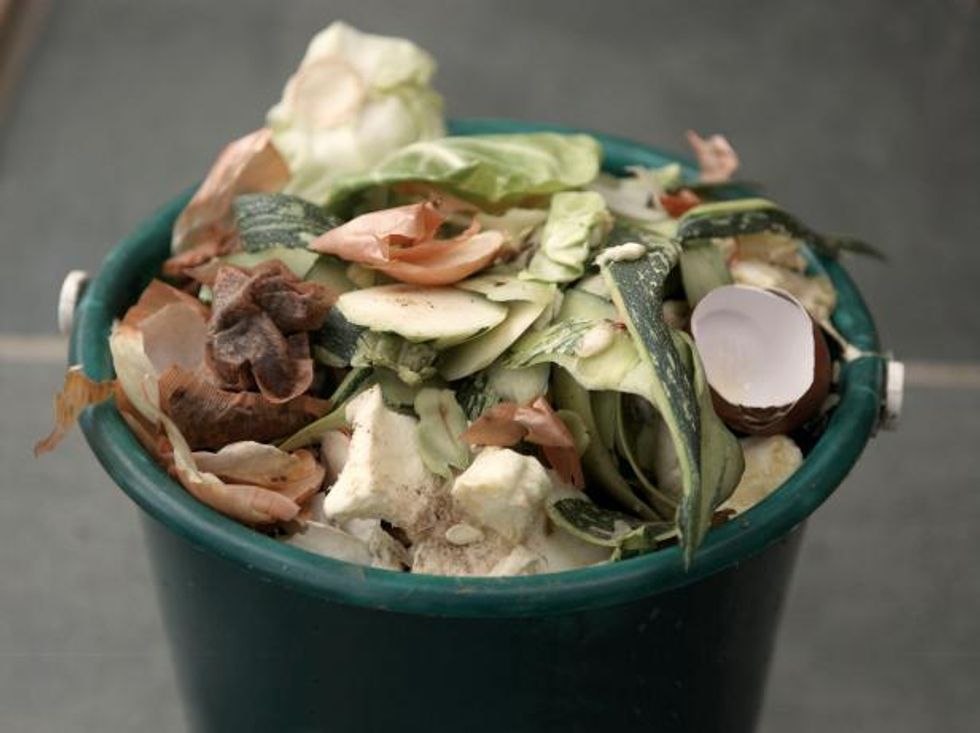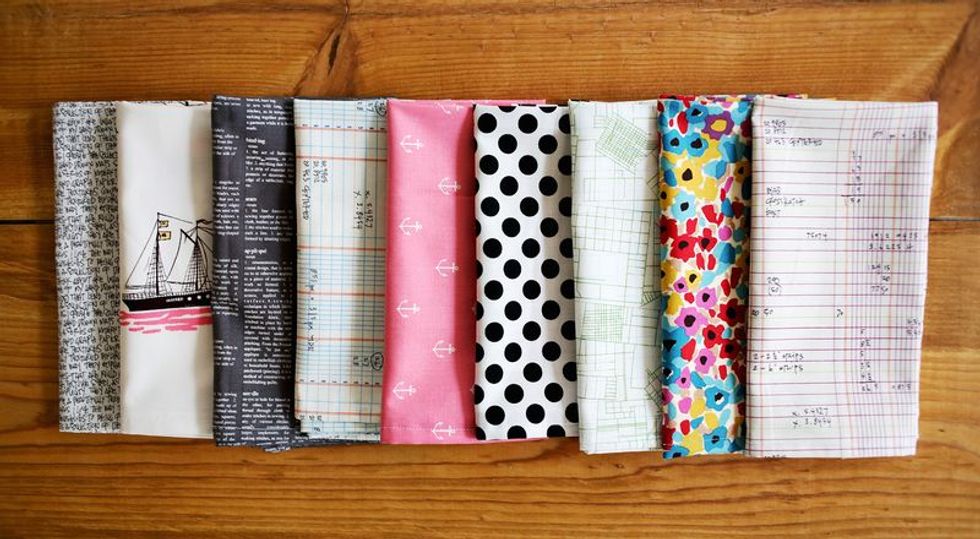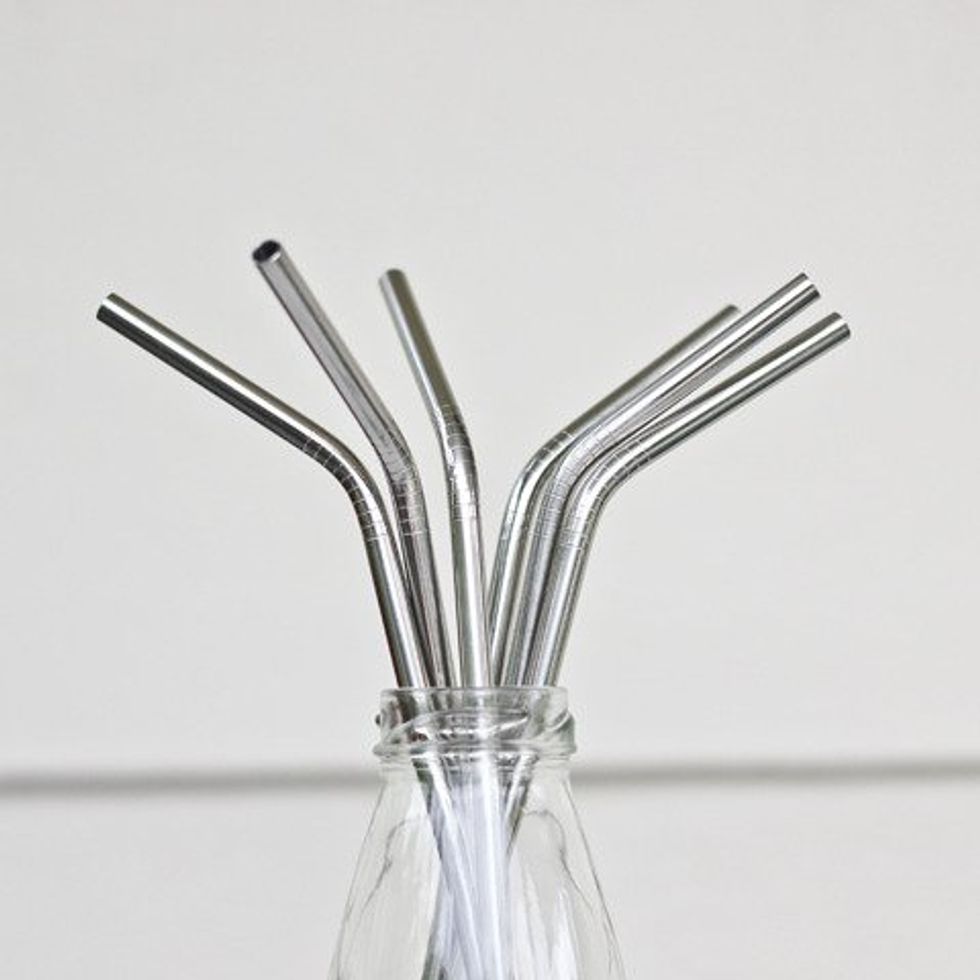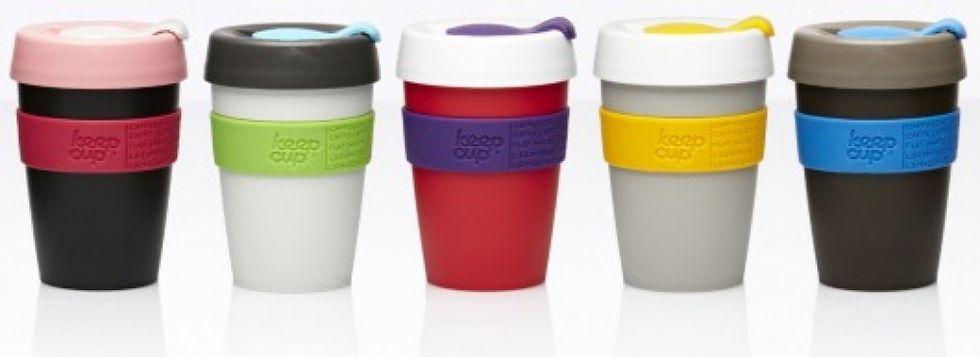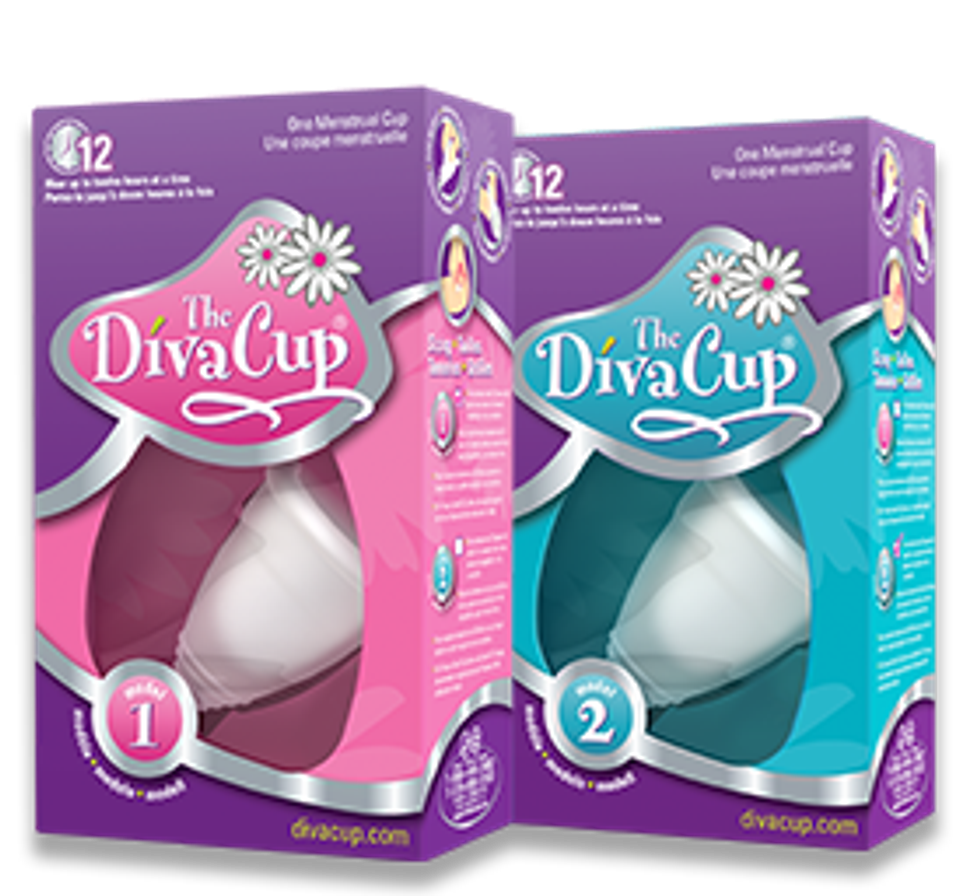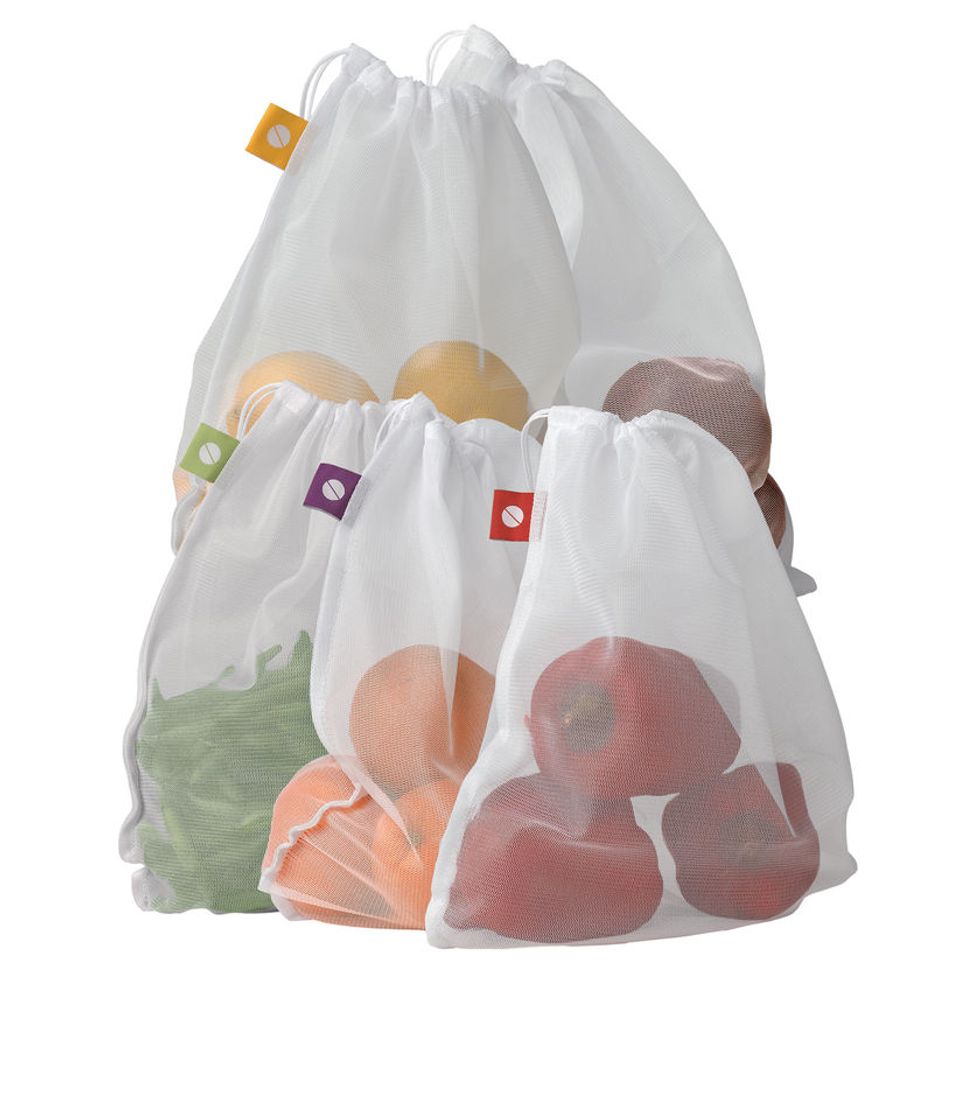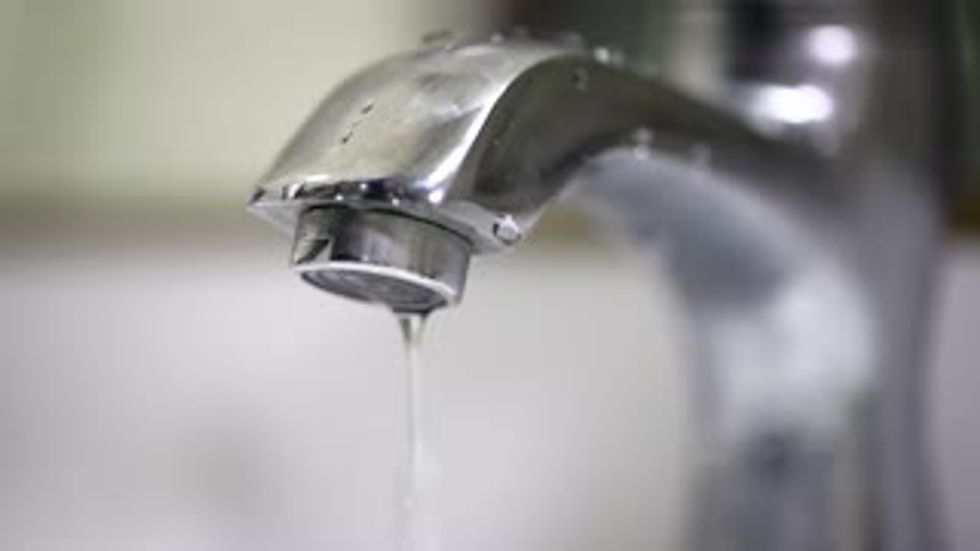In the last year, my five roommates and I have made a conscious choice to live in a more sustainable way. It has been easy and inexpensive. You can do it too.
Thanks to one of my roommates' involvement with sustainable movements on our campus, we became more aware of what we were doing to contribute to the destruction of the earth and what we, as poor, busy college students, could do to help, in our own home.
What follows is a list of easy and inexpensive things that you can do in your living space in order to reduce the waste that you contribute to our landfills and minimize the resources that you use. Let's go!
1. Recycle
I didn't know that I had to say it until I learned that some people just literally don't recycle in their home. It so easy! Get a separate bin. It doesn't have to be something you purchase — my house just uses a large cardboard box that we found. Fill it with your aluminum, paper, plastic, glass and cardboard throughout the week. In many places, your recycling will be collected on the same day as your garbage! If you live in an area that doesn't recycle, it's a little trickier. However, consider looking to see if there are any places that you pass on a somewhat regular basis that do recycle!
2. Compost
This may weird some people out, but my house has been doing it for a year now and I can't imagine not doing it. As people who cook often, we produce so many food scraps! Though composting might take a little extra work, it's simple and easy once you get in a habit! All you need is a bucket with a lid. You can find them on Amazon for as little as $10. Choose the size of the bucket based on how many people live in the home, how often you cook with produce, and where you will be keeping the bucket. For a house of six girls who cook with produce frequently, 5 gallons is a perfect size.
You can also buy compostable bags if you want to avoid having to wipe down your bucket frequently!
If you have a door that leads outside, keep your compost bucket outside. If you do not, you can keep in inside as well! There are cheap compost buckets that are made for indoor use and prevent odors from leaking out of the bucket in your home.
When your compost bucket is full, you can do many different things with it. If you want to start your own compost garden pile, there are many instructions online about how to do so. If you live near a place that composts, as I do, you can bring your compost there and drop off your scraps. Or, you may live in an area that has a compost system similar to a garbage system, where they will pick it up from your home. Look into it!
3. Use cloth napkins.
It's a small change, but it really cuts down on the amount of paper you're using. My roommate found an old tablecloth, cut in into squares and sewed the edges over so they wouldn't fray! Now we have about 20 cloth napkins that we use during meals. To wash, we just throw them in with our laundry. Simple, cheap, and classy!
4. Switch to metal straws
Weird, right? However, 500 million straws are used and discarded every day in the United States alone. Those go into landfills and have a negative effect on your environment. If you're not willing to go straw-less in restaurants or home, using metal straws is an easy fix! They're easy to find at an inexpensive cost online or in stores. Use them for your smoothies, or pop one in your purse for when you go out to eat!
5. Use reusable bottles and mugs.
Plastic water bottles and to-go coffee cups are wasteful and completely unnecessary. Inexpensive reusable water bottles and travel mugs can be found practically everywhere. Take them with you, and if you order coffee or ask for water, ask the barista to use your cup!
6. Use a menstrual cup.
Tampons and pads make a lost of waste — from the box they come in to their wrapping to the actual product. A menstrual cup is a sustainable way to maintain your period. And on top of that, everyone I know who uses it prefers it to pads/tampons in ease and comfort!
7. Switch to cloth grocery bags and produce bags.
Cloth grocery bags are helping to limit the number of plastic bags that people are using and disposing of. However, you can also limit your use of plastic bags by purchasing a pack of small cloth produce bags. It's an inexpensive, easy switch!
8. Limit your water/electricity use.
Whether you're paying the bills or not, limiting your water and electricity use can benefit the planet in immense ways. Turn off the sink when you're brushing your teeth. Don't leave lights on when you leave a room. If you're willing, you can save a lot of water by turning off the shower when you're not actively rinsing. It's the little things!


